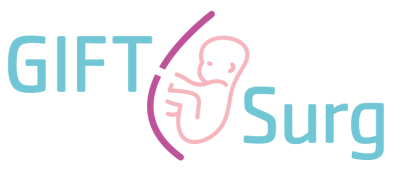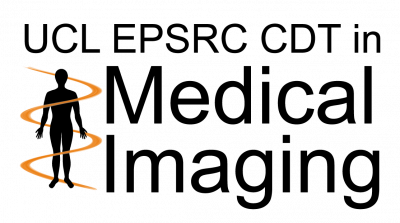Find out more about our affiliated projects and centres.
- GIFT-Surg Project

GIFT-Surg (Guided Instrumentation for Fetal Therapy and Surgery), is led by UCL and KU Leuven in collaboration with with surgeons and doctors at Great Ormond Street Hospital, University College London Hospital NHS Trust and UZ Leuven as part of a highly multidisciplinary team.
The project aim is to engineer a novel combination of innovative interventional imaging systems and MRI/ultrasound scans to provide extremely accurate visualisation, both pre-operative and real-time, which will be used by the surgeon in conjunction with advanced surgical tools that offer new levels of flexibility and precision. A training platform will also be developed to equip surgeons with the necessary skills in the treatment of congenital birth defects such as spina bifida and twin-to-twin transfusion syndrome.
This is a 7-year project which has been running since July 2014 (read more about the project creation on UCL News).
Why is this work important?
Around one in a hundred babies are born with a severe birth defect, and collectively these are estimated to be responsible for over a third of all paediatric hospital admissions and up to a half of the total cost of paediatric hospital treatment.
Birth defects are usually detected prenatally by screening with ultrasound and some of these can benefit from surgical correction because therapy cannot wait until after birth. Performing surgery whilst the fetus is still in the womb improves survival chances and significantly reduces life-time disability.
What are the project aims?:
- Create a small, flexible surgical device which provides better field of view and reduces number of entry ports to one location of less than 5mm.
- Reduce the risk of tremor and scale down the surgeons movements to compensate for the small, complex environment during the operation.
- Develop computer algorithms based on MRI and US scans which provide the surgeon with pre-operative information, such as organ location and optimum entry points for surgery.
- Provide visual equipment which works in real-time during surgery and provides additional 'unseen' data, such as an accurate view of blood vessels, to give greater accuracy to procedures.
- Develop computer software which compensates for poor visibility due to amniotic fluid
Find out more:
Funders:

- CDT in Medical Imaging
Centre for Doctoral Training in Medical Imaging

The CDT in Medical Imaging at UCL offers aspiring candidates an unparalleled training and research opportunity to become the next-generation leaders in translational imaging research. Successful candidates will be able to:
- Gain personal and professional development in a supportive atmosphere
- Work in a highly multi-disciplinary environment of physical and life scientists, engineers and clinicians
- Lead research activities in the field and establish internationally competitive methods and activities
- Translate novel imaging methods from lab to clinic
- Exploit and translate nascent but promising technology to the market place
- Learn to effectively communicate research advances to investors, patient groups, the general public and policy makers
- Fully exploit imaging in the clinical trial setting and show awareness of the international regulatory and ethical framework of clinical trials
- Extensive range of research projects, all with clinical relevance and real-life impact
- Study in the heart of London
Programme structure
Our CDT offers a four year training programme where students will undertake a research project, a mixture of taught courses drawn from existing Masters level courses and a main PhD project (Entry to a three year studentship is possible for those who already have relevant Masters level training or equivalent). Find out more about the programme structure.
Eligibility
Applications are invited from candidates who have achieved, or are predicted, a first class or upper second class honours undergraduate degree (or equivalent international qualifications or experience) and who can demonstrate an interest in medical imaging. Our preferred subject areas are Physical Sciences (Computer Science, Engineering, Mathematics and Physics). Applicants with degrees in Chemistry or Life Sciences must demonstrate strong mathematical skills.
Please visit the CDT in Medical Imaging website for more details
- TeQ Group
Surgical Technology at Queen Square Group (TeQ Group)

The TeQ group aims to improve the outcomes for neurosurgical patients by harnessing the potential of emerging surgical technologies. To achieve this, we conduct translational research across various domains, including artificial intelligence, robotics, simulation, extended reality, neurotechnology.
 Close
Close

